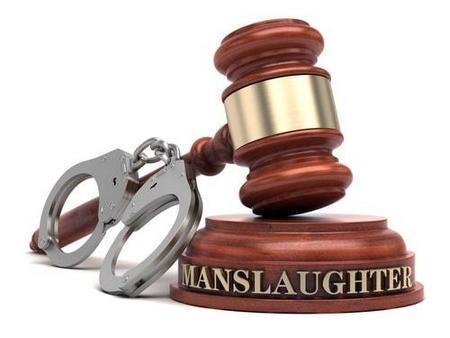Recent Blog Posts
Criminal Record Expungement and Sealing
 Being convicted or charged with a crime has implications that last long after the prison or jail sentence has been served. A criminal record will undoubtedly haunt you for the rest of your life as you seek employment, apply for certain types of loans, find housing, and try to fit in with society again. Employment, in particular, can be difficult to procure if you have a criminal record, as employers often eliminate all applicants with records simply to protect themselves from negligent hiring lawsuits. Sadly, even innocent people are treated like criminals if they were arrested for a crime, but then never convicted. There are steps to take if you were arrested for a crime or convicted of a crime, such a expungement and sealing of criminal records, and a Cook County attorney may be able to help you in this process.
Being convicted or charged with a crime has implications that last long after the prison or jail sentence has been served. A criminal record will undoubtedly haunt you for the rest of your life as you seek employment, apply for certain types of loans, find housing, and try to fit in with society again. Employment, in particular, can be difficult to procure if you have a criminal record, as employers often eliminate all applicants with records simply to protect themselves from negligent hiring lawsuits. Sadly, even innocent people are treated like criminals if they were arrested for a crime, but then never convicted. There are steps to take if you were arrested for a crime or convicted of a crime, such a expungement and sealing of criminal records, and a Cook County attorney may be able to help you in this process.
Record Sealing
Record sealing is the process of making a criminal record invisible to employers and the general public. Law enforcement, judges, and some other governmental entities may be able to access your criminal record even if it is sealed, however. And, not all crimes can be sealed. In fact, very few felony offenses can be placed under seal. Most misdemeanor crimes, however, can be sealed from public view. Although, misdemeanor offenses involving driving under the influence (DUI crimes), crimes of violence, and sexual crimes cannot be sealed, according to the Office of the State Appellate Director.
Is Theft from a Garage Burglary?
 Burglary is a serious felony offense, regardless of the value of the property taken, unlike theft, which is often a misdemeanor crime if the value of the property taken was low. For example, stealing a bike would be considered a misdemeanor of petty theft if the value of the bike was only $300, as per Illinois statute 20 ILCS 5/16-1. If that same bike was stolen out of someone’s residential garage, the crime would automatically be upgraded to a felony. Why is this? Burglary is considered a crime of violence, and the offense is punishable as such.
Burglary is a serious felony offense, regardless of the value of the property taken, unlike theft, which is often a misdemeanor crime if the value of the property taken was low. For example, stealing a bike would be considered a misdemeanor of petty theft if the value of the bike was only $300, as per Illinois statute 20 ILCS 5/16-1. If that same bike was stolen out of someone’s residential garage, the crime would automatically be upgraded to a felony. Why is this? Burglary is considered a crime of violence, and the offense is punishable as such.
Types of Buildings, Structures, and Vehicles that Involve Burglary
Burglary is defined as knowingly entering, or without authority remaining, in any of the following:
- Building;
- House trailer (such as an RV);
- Aircraft;
- Watercraft; or
- Motor vehicle.
The second element to burglary is that the defendant entered one of the above places or vehicles with the intent to commit any felony or any degree of theft. Examples of these felonies include arson, destruction of property, vandalism, assault, sexual assault, homicide, and more. Or, if any theft occurs or the defendant’s goal was to commit a theft, then burglary has occurred. As such, wandering into someone’s open garage to notify the owner that their car is being towed is not burglary. Breaking into their garage or entering it without permission to steal a bike or any other object is burglary.
Violating the Open Meeting Act
 The university president and board of trustees to Western Illinois University are currently under investigation for violating the Open Meeting Act, which mandates that all public entities, such as government bodies and public universities, hold meetings in the open for the public’s right of access. The University Professionals of Illinois has requested that the McDonough County State Attorney’s Office pursue a criminal investigation into the president and board’s actions after an audio recording revealed their closed meeting discussion. Among the violations alleged by the University Professionals of Illinois are:
The university president and board of trustees to Western Illinois University are currently under investigation for violating the Open Meeting Act, which mandates that all public entities, such as government bodies and public universities, hold meetings in the open for the public’s right of access. The University Professionals of Illinois has requested that the McDonough County State Attorney’s Office pursue a criminal investigation into the president and board’s actions after an audio recording revealed their closed meeting discussion. Among the violations alleged by the University Professionals of Illinois are:
- Planning illegal closed meetings;
- Discussing public business in closed meetings;
- Scripting public meetings;
- Failure to release closed session meetings; and
- Circumventing the law with “2 plus 2″ meetings.
Furthermore, the University Professionals of Illinois believes that there were at least 21 closed meetings within the last three years. But what exactly is the Open Meeting Act and how does it apply to those with public positions?
Four Ways to Avoid Incriminating Yourself After Your Arrest
 When you are arrested, your primary objective should be to defend your case to reduce your chance of being convicted as much as possible. Simply being innocent of a crime does not guarantee you will not be convicted. We can estimate the number of Americans who are wrongfully convicted each year, but we cannot know for sure just how many innocent people head to jail and in some cases, die by execution. But we do know that it does happen. Your criminal defense lawyer’s job is to protect you from being convicted. But there are ways you can reduce your chance of being convicted, too. Take some time to educate yourself on ways to avoid self-incrimination.
When you are arrested, your primary objective should be to defend your case to reduce your chance of being convicted as much as possible. Simply being innocent of a crime does not guarantee you will not be convicted. We can estimate the number of Americans who are wrongfully convicted each year, but we cannot know for sure just how many innocent people head to jail and in some cases, die by execution. But we do know that it does happen. Your criminal defense lawyer’s job is to protect you from being convicted. But there are ways you can reduce your chance of being convicted, too. Take some time to educate yourself on ways to avoid self-incrimination.
Choose Not to Talk with Law Enforcement
The Fifth Amendment to the United States Constitution guarantees you the right to avoid self-incrimination. During interactions with law enforcement, you are under no obligation to answer officers’ questions or to even make small talk with them. After you are arrested, tell the police that you do not want to talk to them. Follow that statement by saying that you would like to speak with your attorney. Officers are required to stop questioning you when you request your lawyer.
License Revocation at Discretion of the Court
 Most moving violations do not end up with the driver being sentenced to a license revocation. In fact, even when serious bodily injury has occurred, the driver is typically allowed to drive that very same day so long as they are not seriously injured. However, in some circumstances, a court may revoke a driver’s license without a hearing, as per Illinois statute 625 ILCS 5/6-206 Discretionary authority to suspend or revoke license or permit; right to a hearing.
Most moving violations do not end up with the driver being sentenced to a license revocation. In fact, even when serious bodily injury has occurred, the driver is typically allowed to drive that very same day so long as they are not seriously injured. However, in some circumstances, a court may revoke a driver’s license without a hearing, as per Illinois statute 625 ILCS 5/6-206 Discretionary authority to suspend or revoke license or permit; right to a hearing.
If a driver’s behavior falls under one of 48 different categories, they may lose their license immediately, and without a hearing, if the court believes that is the best course of action to keep other road users safe. These specific behaviors and actions include, but are not limited to, the following:
- The driver committed an offense that requires license or permit revocation upon conviction;
- The driver has been convicted of three or more moving traffic violations in any 12 month period;
Counterfeiting Counts as Theft
 A Chicago man allegedly scammed potentially dozens of people by selling them counterfeit concert tickets. He was recently caught after he sold a woman two $125 Imagine Dragon tickets on Craigslist, who took the tickets to the concert in June only to learn that they were “very good fakes,” according to the ticket checker. The woman later reported the defendant’s license plates to the police, who discovered that they were the plates of a rental car rented by the defendant’s friend and loaned to him. The defendant, who is under investigation for selling numerous counterfeit concert tickets, has five prior convictions for forgery, counterfeiting, and fraud in Texas and Illinois. A number of charges can be slapped onto those who sell counterfeit tickets.
A Chicago man allegedly scammed potentially dozens of people by selling them counterfeit concert tickets. He was recently caught after he sold a woman two $125 Imagine Dragon tickets on Craigslist, who took the tickets to the concert in June only to learn that they were “very good fakes,” according to the ticket checker. The woman later reported the defendant’s license plates to the police, who discovered that they were the plates of a rental car rented by the defendant’s friend and loaned to him. The defendant, who is under investigation for selling numerous counterfeit concert tickets, has five prior convictions for forgery, counterfeiting, and fraud in Texas and Illinois. A number of charges can be slapped onto those who sell counterfeit tickets.
Forgery Charges for Producing or Possessing a Counterfeit Ticket
Under Illinois statute 720 ILCS 5/17-3, forgery has been committed when a person knowingly commits any of the following:
Robbery and Aggravated Robbery
 A man wearing a Teenage Ninja Turtles mask pulled his car up to the window of a drive-through pharmacy in Shiloh, Illinois and demanded a detailed list of prescription medications. He gave the pharmacist a note with instructions and said that if the pharmacist did not obey, force would be used and that there were other accomplices involved. However, before the man was delivered the medications, he drove off. Since he did not actually take anything, did a robbery occur? The short answer is yes. He can be charged with robbery, but not with theft.
A man wearing a Teenage Ninja Turtles mask pulled his car up to the window of a drive-through pharmacy in Shiloh, Illinois and demanded a detailed list of prescription medications. He gave the pharmacist a note with instructions and said that if the pharmacist did not obey, force would be used and that there were other accomplices involved. However, before the man was delivered the medications, he drove off. Since he did not actually take anything, did a robbery occur? The short answer is yes. He can be charged with robbery, but not with theft.
You Do Not Have to Steal Anything in Order to Be Charged with Robbery
The offense of robbery is different than theft in that theft requires that something be unknowingly taken or attempted to be taken from the victim. The value of the property taken determines the level of the crime. Robbery, on the other hand, is a crime of violence and the value of goods taken or attempted to be taken has nothing to do with the level of the crime.
Theft-Related Devices and Shoplifting Charges
 Retail theft is a serious crime in and of itself. Stores across the country lose billions of dollars in merchandise due to theft, and because of that laws are written to severely penalize perpetrators. In fact, retailers lost $50 billion in 2017 due to shoplifting and other forms of fraud. Shoplifting property valued up to $500 is a Class A misdemeanor, punishable by up to a year in jail, whereas theft of property valued $500 to $10,000 is a Class 4 felony, punishable by up to three years in state prison.
Retail theft is a serious crime in and of itself. Stores across the country lose billions of dollars in merchandise due to theft, and because of that laws are written to severely penalize perpetrators. In fact, retailers lost $50 billion in 2017 due to shoplifting and other forms of fraud. Shoplifting property valued up to $500 is a Class A misdemeanor, punishable by up to a year in jail, whereas theft of property valued $500 to $10,000 is a Class 4 felony, punishable by up to three years in state prison.
However, there are other offenses that you can be charged with on top of theft charges that are not related to the value of the property taken. Possession of certain theft-related devices alone can land you in jail. Theft-related tools and devices vary, but a few of the most commonly used “high tech” gadgets include fabricated keys or devices used to steal from coin-operated machines, theft detection shielding devices, theft detection removal devices, and credit card scanners or recoding devices, used to defraud the customer.
Voluntary Manslaughter Charges in Illinois
 Voluntary manslaughter is the intentional killing of an unborn child or acting in a way that would cause harm or death to an unborn child. It is not to be confused with involuntary manslaughter, which is the unintentional killing of another person, not a fetus. Voluntary manslaughter in Illinois was formerly one and the same as second-degree murder: the intentional killing of another person on-the-spot or in the heat of passion (meaning that the killing was not premeditated). However, the law currently recognizes this type of homicide simply as second-degree murder, not voluntary homicide. Today’s law is such that voluntary manslaughter is only charged when the victim is an unborn child. It is akin to second-degree murder of an unborn child, a very serious crime.
Voluntary manslaughter is the intentional killing of an unborn child or acting in a way that would cause harm or death to an unborn child. It is not to be confused with involuntary manslaughter, which is the unintentional killing of another person, not a fetus. Voluntary manslaughter in Illinois was formerly one and the same as second-degree murder: the intentional killing of another person on-the-spot or in the heat of passion (meaning that the killing was not premeditated). However, the law currently recognizes this type of homicide simply as second-degree murder, not voluntary homicide. Today’s law is such that voluntary manslaughter is only charged when the victim is an unborn child. It is akin to second-degree murder of an unborn child, a very serious crime.
Definition of Voluntary Manslaughter
As per Illinois 720 ILCS 5/9-2.1, voluntary manslaughter is:
- Causing the death of an unborn child by acting “under a sudden and intense passion resulting from serious provocation” by another person whom the defendant tries to kill, but in so doing the defendant “negligently or accidentally causes the death of the unborn child”; or
Involuntary Manslaughter in Illinois
 Involuntary manslaughter is a classification of homicide, which is the unlawful killing of another person. While first- and second-degree murder involves the intentional killing of a person, involuntary manslaughter can be thought of as an unintentional type of killing. Make no mistake; involuntary manslaughter is a serious crime, and the penalties you may be sentenced with can be harsh.
Involuntary manslaughter is a classification of homicide, which is the unlawful killing of another person. While first- and second-degree murder involves the intentional killing of a person, involuntary manslaughter can be thought of as an unintentional type of killing. Make no mistake; involuntary manslaughter is a serious crime, and the penalties you may be sentenced with can be harsh.
Penalties for Involuntary Manslaughter
Under Illinois 720 ILCS 5/9-3, involuntary manslaughter is the unintentional and unjustified killing of an individual when the defendant’s acts, either lawful or unlawful, are likely to cause death or serious bodily injury to another. As such, when a person performs dangerous reckless actions that result in the death of another, that person will be charged with involuntary manslaughter, unless they were operating a vehicle. As a Class 3 felony, involuntary manslaughter is punishable by up to five years in prison. Examples of actions that could lead to involuntary manslaughter include:






















